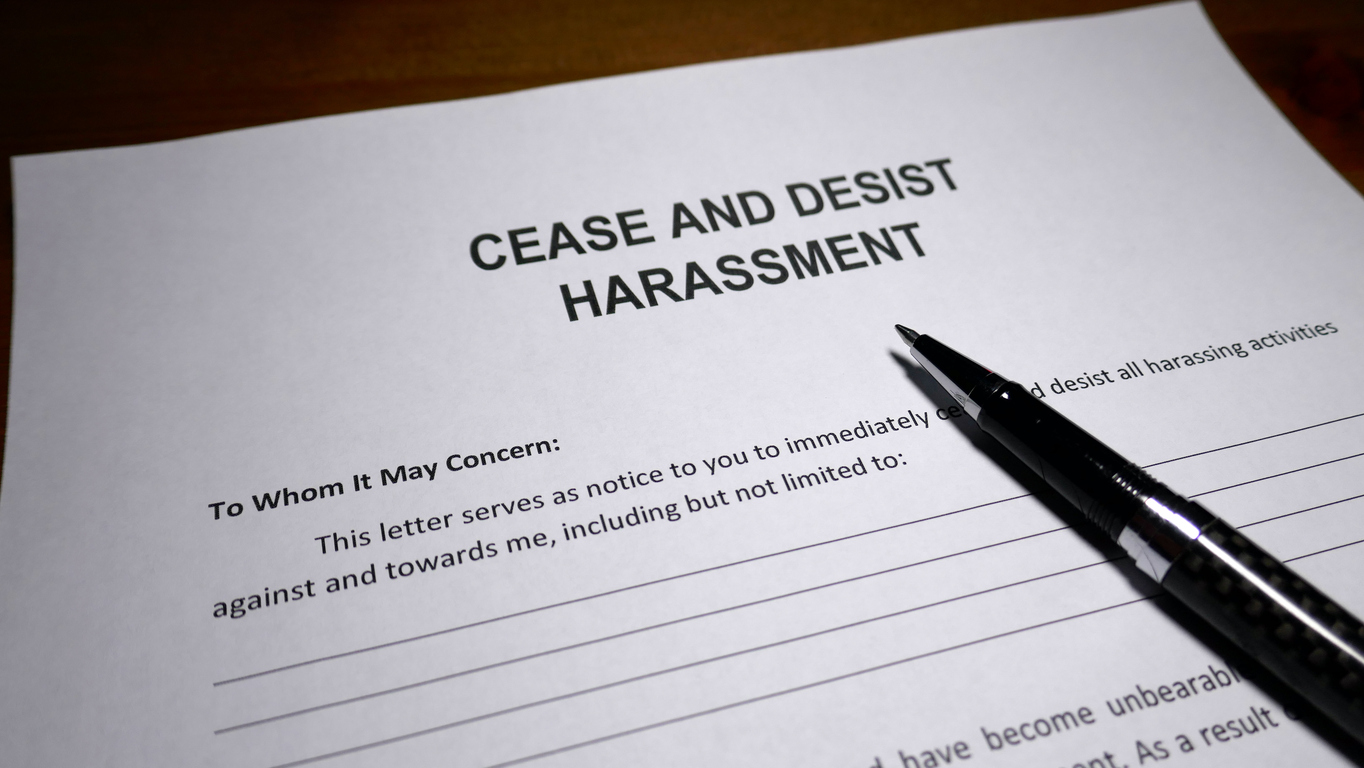Posted on: June 22, 2023 by Huntersure

Receiving a cease and desist letter can be anxiety-inducing, especially if you have no legal background. As an insurance agent, many clients and employees rely on you — what happens if you have to go to court and can’t devote the proper resources to your agency? Before you jump to the worst-case scenario, know that a demand letter may not be as severe as it seems. In fact, with the correct response, you may not have to worry about a civil case at all.
Demand letters function just as you’d assume: they demand the recipient stop a particular action under threat of legal recourse. Since attorneys write them, demand letters may contain jargon you don’t understand or reference unfamiliar laws; tactics meant to scare the recipient into complying without probing further. The truth is that a demand letter is unenforceable — and anyone can pay a law firm to write one.
In contrast, courts issue cease and desist orders, and you must legally comply. How can you distinguish between an order and a letter? The first comes from a government agency or court, while the latter comes from an attorney. You can search public records if the source needs clarification, as an order will appear there.
When you receive a demand letter, your first instinct may be to contact an attorney, which is an excellent first step. However, you may benefit from calling your insurance company, depending on the situation.
Typically, demand letters contain a request that the recipient stops the following:
If the cease and desist letter applies to your business, your professional liability insurance may pay for representation in a potential lawsuit.
Professional liability coverage generally covers the cost of legal representation and even settlement if the case never goes to court. The insurance company lawyers also handle the paperwork and tracking deadlines, allowing you to focus on running your agency.
Figuring out how to respond to a cease and desist letter takes a clear head, so don’t be afraid to take a moment to breathe deeply and calm your nerves. Once you handle your emotions, get legal advice on the next steps.
Your attorney will review the letter’s contents and help you understand whether it warrants an answer. If you haven’t committed any actions, the sender has no legal ground to stand on, so there’s no need to respond.
Of course, that doesn’t mean they’ll stop. Senders of demand letters generally believe they’re in the right — or they may benefit from pressuring you to settle out of court. Either way, if you continue to receive these letters, you may need to build a legal defense, as there’s a chance the sender may take you to court. It’s best to have your case ready, as senders may back off once it’s clear they can’t bully you.
Finally, you can comply with a cease and desist letter. Doing so doesn’t necessarily admit guilt — it only means you don’t want to expend resources on a court case.
Huntersure LLC is a full-service Managing General Agency that has provided insurance program administration for professional liability products to our partners across the United States since 2007. We specialize in providing insurance solutions for businesses of all sizes. Our program features can cover small firms (grossing $2.5 million annually) to large corporations (grossing $25 million annually or more). We make doing business with us easy with our breadth and depth of knowledge of E&O insurance, our proprietary underwriting system that allows for responsive quoting, binding and policy issuance and tailored products to meet the needs of your insureds. Give us a call at (855) 585-6255 to learn more.
Posted in: Professional Liability Professional Liability Insurance